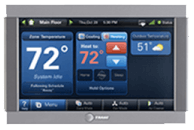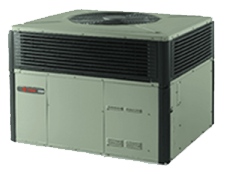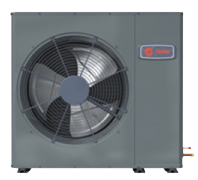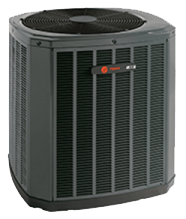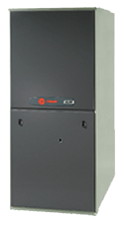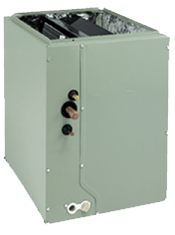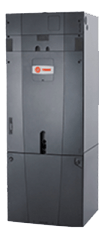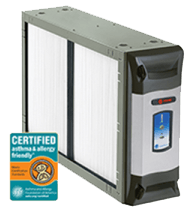
It seems like most people can’t come to a consensus when it comes to humidity and whether its a good or bad thing. Some swear that it does great things for their skin, others hate that it ruins their hair.
Humidifiers are popular in dry climates and during the cold winter months, while dehumidifiers are found in homes in naturally humid climates. What’s the best answer for your air quality? To humidify, or not to humidify?
The short answer is, balance!
The Health Concerns With Humidity
Despite the many benefits of moderate levels of humidity inside the home, there are health issues involved with a home that has too much moisture, and one that is too dry.
Too Wet!
 Can make breathing difficult and some allergies worse. Common allergens like dust mites, mold, and mildew thrive in damp environments.
Can make breathing difficult and some allergies worse. Common allergens like dust mites, mold, and mildew thrive in damp environments.- Dirty humidifiers spread germs around the room, and promote coughs and colds.
- If unfiltered tap water is used, minerals can cause buildup in the machine and cause it to break. These minerals are also evaporated into the air, causing people to inhale them and settle around the room as dust.
- Skin Rashes and other breathing irritations can occur, especially for people with asthma.
Too Dry!
- Can cause dry skin, lips, throat and airways, promoting dry coughs and irritated vocal cords.
- Calls for itchy eyes, bloody noses, and overall membrane irritation.
- Sinus headaches and congestion.
Just Right!
- According to the US Environmental Protection Agency (EPA), indoor humidity levels should be between 30-50%. Levels above 60% are too high.
How Can Humidifiers Help?
If you live in a dry environment with harsh cold winters, a humidifier can be your best friend. These are a few of the benefits of owning a humidifier, and why you should invest in one:
- Preventing Influenza - Studies show that humidifiers might reduce the risk of catching the flu.
- Productive Coughs - Moisture in the air allows for ‘productive’ coughs that can expel trapped or tricky phlegm, thus freeing up the airways and alleviating cold symptoms.
- Reducing Snoring - Humid air allows for the airways to be properly lubricated and limit dryness in the throat that promotes harsh snoring.
- Keeping Hair and Skin Moisturized - Nothing hurts more than cracked knuckles and lips, especially in the cold winter months. Since heating units usually propel hot, dry air throughout the room, a humidifier can prevent total dryness.
- Reducing Allergy and Asthma Symptoms - People with dry sinuses and congestive issues that are prone to allergic reactions find that humidity alleviates their symptoms.
- Benefits for the Home - The extra moisture in your home also makes houseplants happy! It is also known to make wooden floors, furniture, and wallpaper last longer.
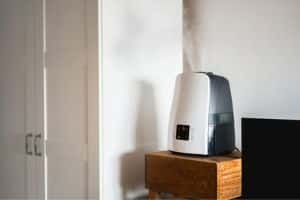
Always keep in mind that your humidifier must be kept clean to avoid the fostering and spreading of germs, harmful bacteria, and dust in your home.
What About Dehumidifiers?
Likewise, climates with too much humidity has adverse effects on people and their homes. Dehumidifiers remove moisture from the air and decrease humidity levels. If you’re tired of the dampness, consider:
- A Dehumidifier can make your home less welcoming to allergens that thrive in damp environments, like dust mites, mold, mildew, and some harmful bacteria. They also reduce musty odors associated with such allergens.
- They are usually quiet but efficient. You won’t even notice while they’re working hard!
- Reduce the risk of developing mold on your clothes, furniture, and linen.
- Less humidity means food will last longer without going bad, and there will be less corrosion on your electronics.
- A dehumidifier arguably saves energy costs because removing moisture from the air allows your A.C. to do less work to cool your home and wears out less over time.
- If you have experienced flooding in your home, a dehumidifier can relieve some of the excess moisture from the air.
- Running a humidifier in the summer can aid with that wet and sticky feeling we all hate.
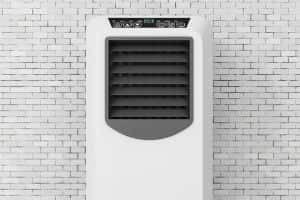
Your House, Your Rules, Your Levels of Humidity.
The pros and cons of humidifiers versus dehumidifiers really boils down to personal comfort levels and environmental factors. A much too humid room can cause moisture damage to your home and to yourself.
A much too dry environment can cause skin and breathing irritations. If you still cannot decide whether to invest in a humidifier or dehumidifier, consult with one of our experts at Wolfgang’s Cooling & Heating and see what is best for you.

